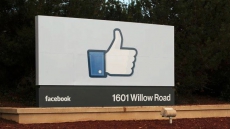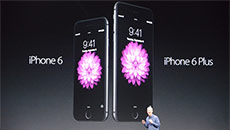SYDNEY, Australia — Australian police on Wednesday raided the home and business premises of a man that technology news sites have claimed is the founder of virtual currency bitcoin.
A statement from the Australian Federal Police said the searches were related to a tax investigation and not recent media reports on the virtual currency, which is used for transactions across borders without third parties such as banks.
Federal officers and tax officials refused to answer questions as they left the house in a Sydney suburb hauling two black roller suitcases.
Technology publications Wired and Gizmodo published reports this week claiming an Australian businessman is bitcoin's likely inventor.
Since bitcoin's birth in 2009, the identity of currency's creator has remained a mystery. The person, or people, behind the digital currency's inception have been known only as "Satoshi Nakamoto," which many observers believed to be a pseudonym.
In March last year, American Dorian Prentice Satoshi Nakamoto denied in an exclusive interview with The Associated Press that he was the inventor after Newsweek published a 4,500-word cover story linking the currency to him.
Attempts to reach the Sydney businessman that reports claim is Nakamoto were unsuccessful.
A man answered a mobile phone number belonging to the businessman's wife. When an AP journalist asked if she was speaking with the person named as Nakamoto, he asked who was calling. When told he was speaking to a reporter, the man said, "Sorry. Not here," and hung up. Voicemails left on the man's mobile and office numbers were not returned.
His LinkedIn profile lists him as working for a Sydney company that focuses on "alternative currency" and "next generation banking."
The police search of the man's home in the wealthy northern Sydney suburb of Gordon lasted several hours and drew a steady trickle of perplexed neighbours into the quiet, tree-lined street.
Many described the man as quiet and somewhat standoffish, and said they had noticed the family kept an unusual amount of electronics running in the sunroom at the front of their two-story brick house. None had seen the family on Wednesday; letters overflowed the mailbox and the garbage bins were full.
"He has his computer running quite often," said a teenage neighbour, who declined to give his name.
The teen said the family had lived at the house for about a year and has two kids, a dog and several hens. The family drives a Jaguar and a Lexus, but rents the property, the teen said. He had no idea he had been named as the alleged founder of bitcoin.
A GLANCE AT BITCOINS IN THE WAKE OF A POLICE RAID ON A HOME IN AUSTRALIA

Here's an explanation of what bitcoins are, how exchanges work.
Q: What's a bitcoin?
A: Bitcoin is an online currency that allows people to make one-to-one transactions, buy goods and services and exchange money across borders without involving banks, credit card issuers or other third parties. As a result, this exotic new form of money has become popular with libertarians as well as tech enthusiasts, speculators — and criminals. Bitcoins are basically lines of computer code that are digitally signed each time they travel from one owner to the next.
Q: Who's behind the currency?
A: It's a mystery. Bitcoin was launched in 2009 by a person or group of people operating under the name Satoshi Nakamoto and then adopted by a small clutch of enthusiasts. Nakamoto dropped off the map as bitcoin began to attract widespread attention, but proponents say that doesn't matter; the currency obeys its own, internal logic.
Q: What's a bitcoin worth?
A: Like any other currency, bitcoins are only worth as much as you and your counterpart want them to be. In its early days, boosters swapped bitcoins back and forth for minor favours or just as a game. One website even gave them away for free. As the market matured, the value of each bitcoin grew. At its height last year, a single bitcoin was valued at $1,200. On Wednesday, it was worth $417.99.
Q: Is the currency widely used?
A: That's debatable. Businesses ranging from blogging platform Wordpress to retailer Overstock have jumped on the bitcoin bandwagon amid a flurry of media coverage, but it's not clear whether the currency has really taken off.
On the one hand, leading bitcoin payment processor BitPay works with more than 20,000 businesses — roughly five times more than it did last year. On the other, the total number of bitcoin transactions has stayed roughly constant at between 60,000 and 70,000 per day over the same period, according to bitcoin wallet site blockchain.info.
Q: Is bitcoin particularly vulnerable to counterfeiting?
A: The bitcoin network works by harnessing individuals' greed for the collective good. A network of tech-savvy users called miners keep the system honest by pouring their computing power into a blockchain, a global running tally of every bitcoin transaction.
The blockchain prevents rogues from spending the same bitcoin twice, and the miners are rewarded for their efforts by being gifted with the occasional bitcoin. As long as miners keep the blockchain secure, counterfeiting shouldn't be an issue.
Q: If that's the case, what's all this talk about fraud?
A: A lot of the mischief surrounding bitcoin occurs at the places where people store their digital cash or exchange it for traditional currencies, like dollars or euros. If an exchange has sloppy security, or if a person's electronic wallet is compromised, then the money can easily be stolen.
Q: So why is bitcoin in the news again?
A: Technology publications Wired and Gizmodo published reports this week claiming an Australian businessman is bitcoin's likely inventor. The Australian Federal Police said the search Wednesday was related to a tax investigation and not recent media reports on bitcoin.





